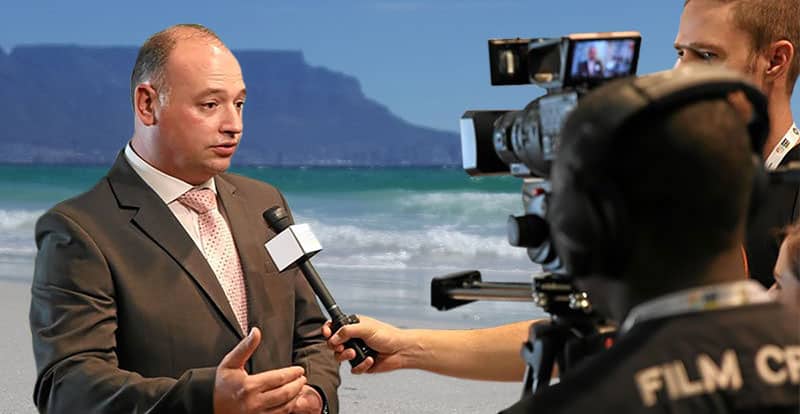Thought Leadership: Hunting vs Conservation
Conservation with class and hunting with thought: a synergistic approach to the hunting versus conservation debate.
Hunting is still a highly controversial topic in the travel trade as few consider the significant contribution that ethical hunting plays in wildlife conservation.
Public opinion maintains a virulently anti-hunting stance. A stance that dictates that hunting and conservation are binary opposites – two diametrically opposing sectors in which all hunting is canned, cruel and intrinsically unethical; and all conservation is good and well-managed.
In stark contrast, Buffalo Kloof – a Private Game Reserve located in the Malaria-free Eastern Cape province of South Africa – sees itself as pursuing ‘the road less travelled’, and in this way, possibly even something of a trailblazer.

The wild species that call this place home tell a story of times gone by when the majestic African animals roamed freely and reigned over the ancient soil. The reserve features the so-called ‘Big 5’ (lion, elephant, white rhino, leopard, Cape buffalo); and many other wildlife species including kudu, eland, sable, bushbuck, reedbuck, impala, warthog and the emblematic South African
“We are passionate about the fact that hunting and conservation are actually just two sides of the same coin; and for that reason, need each other and – properly and ethically managed – can harmoniously and synergistically co-exist for the benefit of the game farm, its wildlife, local communities and even the country as a whole,” says the co-owner of Buffalo Kloof, Warne Rippon.
Hunting and conservation combine in a symbiotic relationship
In line with its ethos and tagline ‘conservation with class – hunting with thought’, Buffalo Kloof have chosen a somewhat unconventional approach to the well-worn hunting versus conservation debate. Many game farms that have offered hunting have bowed to animal activist lobbying and ceased their hunting operations due to popular pressure.
“In contrast to this, and taking a very different stance, we have not only invested heavily in the conservation of our vulnerable ecosystem; but also proudly offer an authentic hunting experience to guests. This is in line with the highest global free roam and fair chase certification – the internationally-recognised, ethical and prestigious Rowland Ward Fair Chase Outfit (RWFCO) standard,” says Rippon.

“We can proudly say that through our combined hunting and conservation initiatives, we have introduced elephants into the region for the first time in 300 years; while lions and cheetah are now also roaming our soil for the first time in 200 years.”
Key points to consider around the ongoing hunting-conservation debate
The conservation of vulnerable and keystone species requires major financial input over a protracted period of time, frequently without generating substantial returns for many years. It is therefore not financially sustainable – or indeed even viable – without additional income-generating operations. This is where hunting has an important role to play, as it can generate the necessary funds to sustain conservation activities in the long-term.
Hunting operations leave a minuscule footprint on the land – and there is, therefore, no significant impact on the ecosystem.

“Biodiversity is of crucial importance to the stability of natural ecosystems. However, to maintain healthy biodiversity, a complete spectrum of flora and fauna is required. In order to maintain this delicate balance, the numbers of faster-growing animals have to be controlled, thereby providing the opportunity for slower-growing species to reach maturity,” says Rippon. Hunting is, therefore, a key aspect in the management of this crucial biodiversity.
Today’s conservation managers have a number of tools at their disposal, one of these being hunting. In the past four decades, in particular, hunting has played a vital role in restoring and preserving scarce wildlife throughout Southern Africa.
A particular example of this is in Botswana, where hunting was banned for a number of years but has recently been reinstated. This is due to the fact that the government recognised the crucial role hunting plays in preventing poaching, which had hitherto been responsible for the decimation of their indigenous keystone species populations.
Apart from poaching, one of the main reasons for vulnerable species facing extinction is a significant and ongoing encroachment upon, and reduction in, their natural habitat – caused by human usage and alteration of land. It is therefore important that uninhabited regions be used for conservation of wildlife – which is, once again, rendered sustainable through hunting.
Further to the above point, with the ever-increasing pressures of over-population and climate change, mankind needs to be putting every square kilometre of the globe to more productive use. Particularly in drier, less arable regions, the conservation, management and hunting of wildlife have been shown to be the most productive utilisation of land.
Hunting lodges and game reserves are sources of valuable foreign capital; and also often provide jobs for members of neighbouring rural communities, where other forms of employment are few and far between. This results in the local population learning about and becoming involved in conservation, anti-poaching and land stewardship activities going forward.

In addition, hunting can form a valuable link in the eco-tourism ‘chain’, complementing such activities as tourism, fishing, hiking and photographic safaris.
The growth of South Africas’ hunting industry in the past half-century has been remarkable.
Fifty years ago, there was little in the way of a hunting industry – and not much wildlife to be hunted. Today, the hunting and wildlife sector is a strong contributor to the South African economy, generating some R122,7 billion annually.
Wildlife tourism earns R104 billion – of which R7,5 billion is from hunting; game breeding and sales contribute R10 billion; while R1,2 billion is from the
In 1964, a survey quoted by Professor Jane Carruthers in her book, Wilding the Farm or Farming the Wild, showed that game numbers in this country had been reduced to approximately 557,000 animals.
Since then and by 2007, the efforts of state conservation agencies and private landowners farming with wildlife has seen the animal population rise to some 18,6 million.
Today there are approximately 8 979 wildlife ranches in the country covering an estimated land area of 1 221 000km2. This is more than double the area covered by our government’s protected areas.
In addition
The ravaging realities of rhino poaching
Rhinos once roamed a far-reaching, global habitat – stretching throughout Europe, Asia and Africa. Today, however, they are critically endangered, with only a small population surviving in protected sanctuaries.

South Africa is the main custodian of the world’s rhinos, and home to approximately 80% of their population. It is, therefore, a very painful reality that rhino poaching in South Africa has increased by some 9000% over the last decade. At the current rate of poaching, rhinos are facing imminent extinction.
“In response to this scourge of epidemic proportions, we at Buffalo Kloof have opened our hearts to join the fight against poaching of rhino and other iconic, vulnerable keystone species,” says Rippon. “Underpinning our anti-poaching and extensive conservation efforts is the reality that all these would simply not be possible without the revenue which hunting brings in.”

“Apart from our conservation efforts, Buffalo Kloof is furthermore involved in a variety of community upliftment initiatives – through which we develop and empower our neighbouring Yendella community to become financially self-sustaining; while, at the same time, also educating them about wildlife and conservation.”
Taking home a fresh new approach to an age-old debate
The proof of the pudding, they say, is in the eating. Readers are urged to visit Buffalo Kloof, and, in addition to taking home hunting trophies and warm memories of their time spent at Buffalo Kloof – their hunting and eco-tourism guests alike – will be inspired by their trendsetting example of the potential for a successful symbiosis between hunting and conservation.

“We are confident that our guests’ experiences – be it from fair chase, free roam hunting, or shooting amazing photos and learning more about our diverse flora and fauna – will demonstrate that our synergistic approach to accommodating both responsible hunting and conservation can (as unconventional and even shocking to some as this may seem!) provide a viable and sustainable model for game farm and wildlife safari outfits in our beloved country going forward,” concludes Rippon.
About Buffalo Kloof Wildlife Safaris
Buffalo Kloof Hunting Safaris is a family owned professional hunting and conservation business, owned and operated by Ralph and Diana Koster, and Warne and Wendy Rippon. The 70 000 acre property is home to the ‘big 5: lion, elephant, rhinos, leopard and buffalo. It is situated in the malaria-free Eastern Cape Province of South Africa.
An excellent example of the conservation, management and sustainable use of wildlife is to be found at Buffalo Kloof, with its involvement in a variety of breeding, game management and conservation activities; as well as community empowerment initiatives. Buffalo Kloof is also one of only two exclusive Rowland Ward ‘fair chase’ outfits in South Africa.
For both the hunter and the eco-tourist, this destination offers comfort combined with a superb African wildlife and bush adventure experience.
To book your stay telephone +27 416 1666 or email info@buffalokloofsafaris.co.za or for more information visit buffalokloofsafaris.co.za




